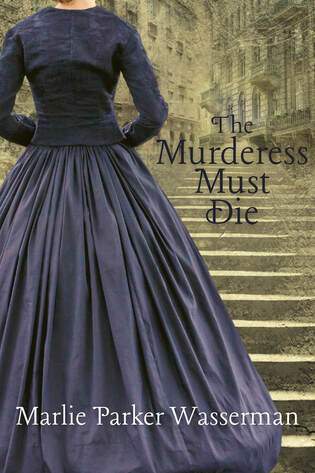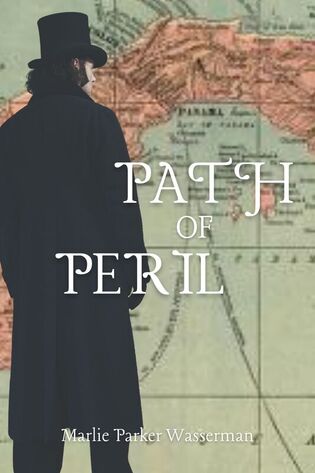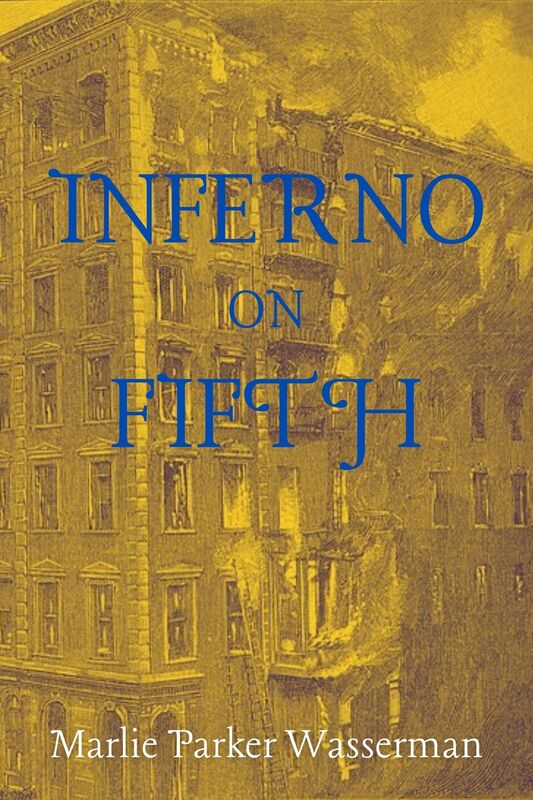|
About the Author...
Marlie Wasserman writes historical crime fiction. Her debut novel, Now You Are Listening, tells the story of Martha Place, the first woman to die in the electric chair. Marlie is writing two other novels—one set in Panama in 1906, centered around Teddy Roosevelt’s visit to the Canal, and another set in Manhattan in 1899, centered around a deadly hotel fire. Before she turned to novels, Marlie ran a scholarly publishing house specializing in nonfiction books in the social sciences and humanities. When she is not writing, Marlie sketches and travels. Topping her bucket list is a visit to each of the United States’ sixty-two national parks. She has visited thirty-nine to date. Marlie and her husband Mark split their time between New Jersey and North Carolina. |
About the Book...
The Murderess Must Die (July 2021) Path of Peril (2023) Inferno on Fifth (2023) News and Reviews...
For Path of Peril “Nothing better than settling down with a good, crisp, detail-rich assassination thriller. Someone is after Theodore Roosevelt, and author Marlie Wasserman tightens the screws, ratchets the tension, and twists the plot again and again. Read it." — William Martin, New York Times Bestselling Author of The Lincoln Letter and December '41 “A feast of characters, scenery and history, Wasserman sets the table for a tremendous read. Path of Peril is a privileged walk with TR, his wife, his staff and dozens of characters struggling to create one of the “greatest engineering feats of the century.” — Chris Keefer, author of No comfort for the Undertaker, a Carrie Lisbon Mystery “Wasserman’s new novel, set around President Teddy Roosevelt’s visit to the Panama Canal in 1906, is more than just a historical crime novel. Her wonderful style of writing and her painstaking research into how assassins behave makes this book a must for readers. . . . In her profiles of the assassins, she does an excellent job of humanizing them but not excusing their actions or making them out to be heroes. Path of Peril is enjoyable and engaging and places the reader at the center of a fast, explosive and intriguing plot—making this new book one that should not be missed.” — Mel Ayton, author of Plotting to Kill the President For The Murderess Must Die “A true crime story. But in this case, the crime resides in the punishment. Martha Place was the first woman to die in the electric chair: Sing Sing, March 20, 1899. In this gorgeously written narrative, told in the first-person by Martha and by those who played a part in her life, Marlie Parker Wasserman shows us the (appalling) facts of fin de siècle justice. More, she lets us into the mind of Martha Place, and finally, into the heart. Beautifully observed period detail and astute psychological acuity combine to tell us Martha’s story, at once dark and illuminating. The Murderess Must Die accomplishes that rare feat: it entertains, even as it haunts.” — Howard A. Rodman, author of The Great Eastern “The first woman executed by electric chair in 1899, Martha Place, speaks to us in Wasserman’s poignant debut novel. The narrative travels the course of Place’s life, describing her desperation in a time when there were few opportunities for women to make a living. Tracing events before and after the murder of her stepdaughter Ida, in lean, straightforward prose, it delivers a compelling feminist message: could an entirely male justice system possibly realize the frightful trauma of this woman’s life? This true-crime novel does more—it transcends the painful retelling of Place’s life to expand our conception of the death penalty. Although convicted of a heinous crime, Place’s personal tragedies and pitiful end are inextricably intertwined.” — Nev March, author of Edgar-nominated Murder in Old Bombay “The Murderess Must Die would be a fascinating read even without its central elements of crime and punishment. Marlie Parker Wasserman gets inside the heads of a wide cast of late nineteenth century Americans and lets them tell their stories in their own words. It’s another world, both alien and similar to ours. You can almost hear the bells of the streetcars.” — Edward Zuckerman, author of Small Fortunes and The Day After World War Three, Emmy-winning writer-producer of Law & Order For Inferno on Fifth “Was it a freak accident, intentionally set, or the result of inadequate regulation? Marlie Wasserman’s meticulously researched novel imaginatively reconstructs events leading up to the disastrous 1899 Windsor Hotel fire in New York. Through a diverse cast of characters—rich and poor alike—whose lives unwittingly intertwined on a fateful spring day, she explores the complex motivations behind acts of bravery and flights of conscience.” — Kathleen B. Jones, author of Cities of Women “In Inferno on Fifth, Marlie Parker Wasserman meticulously reconstructs the story of the luxurious Windsor Hotel fire, the deadliest fire in New York before the Triangle Shirtwaist Factory fire, which, twelve years later, led to dramatic and long-overdue fire safety legislation. In Wasserman’s riveting account, the workers—whose lives did not interest contemporary reporters—join the wealthy protagonists of the late Gilded Age to play a critical role in a gripping historical narrative.” — Edvige Giunta, coeditor of Talking to the Girls: Intimate and Political Essays on the Triangle Shirtwaist Factory Fire |
Connect with Marlie



